Let’s get one thing straight: exam stress is real, and almost every student feels it. Whether you’re prepping for finals, standardized tests, or even a surprise pop quiz, the pressure to perform can turn even the most confident person into a ball of nerves. Your heart races, your mind goes blank, and suddenly everything you studied seems to disappear. Sound familiar? If so, you’re not alone—and you’re definitely not doomed.
In this guide, we’re going to break down the science behind exam stress, share powerful study hacks, and look at focus supplements that actually help (no sketchy energy drinks required). Get ready to level up your study game, manage your nerves, and walk into your next exam with confidence.

Why Exams Make Us So Anxious
Exams can feel like a make-or-break moment for your grades, your future, and sometimes even your self-worth. There’s pressure from teachers, parents, and let’s be honest, ourselves. When you care about doing well, your brain sees exams as a big threat—and that triggers the classic “fight, flight, or freeze” stress response.
You’re not being dramatic: your body is literally flooding with stress hormones like cortisol and adrenaline. These chemicals are supposed to help you focus, but too much can do the opposite—making it hard to concentrate, remember facts, or even sleep the night before.
You’re Not Alone—Everyone Gets Test Nerves
Even the straight-A students and star athletes get nervous before big exams. The key is learning how to manage those nerves so they work for you—not against you. A little stress is normal and can actually boost performance (it’s called “eustress”), but chronic or overwhelming stress needs a smarter approach. That’s where the right mindset, study strategies, and even focus supplements can make a real difference.
Understanding Exam Stress and Its Impact on Performance
Exam stress shows up in all kinds of ways—and if you ignore it, it can sabotage your results.
Common Signs of Stress Before and During Exams
-
Trouble sleeping the night before
-
Stomachaches or headaches
-
Racing thoughts or blanking out
-
Sweaty palms, shaky hands, or a racing heart
-
Feeling irritable, panicky, or just “off”
These are all signs your body is on high alert. If you recognize these feelings, it’s actually good news—it means you can start managing them with proven strategies.
How Stress Affects Memory and Focus
Stress is a double-edged sword. A little bit keeps you alert. Too much? Your brain gets overwhelmed. High levels of cortisol can block memory formation, making it hard to recall what you studied. You might find yourself rereading the same page over and over, or zoning out during your study sessions.
Chronic stress also makes you more likely to procrastinate, self-sabotage, or even give up. That’s why learning to manage stress isn’t just about feeling better—it’s about unlocking your brain’s full potential.
Study Hacks for Reducing Exam Stress
Here’s where things get practical. You can’t control the exam, but you can control how you prepare. The right study strategies don’t just boost your grades—they also keep stress in check.
The Power of a Study Schedule
Winging it the night before an exam is a recipe for panic. A simple study schedule helps you break big goals into bite-sized chunks—and gives your brain time to process information. Use a planner or digital calendar to block off specific times for each subject, and make your study sessions short and focused.
-
Pro tip: Schedule in breaks and fun activities too. Balance = less burnout.
Active Recall and Spaced Repetition
Don’t just read your notes—quiz yourself! Active recall means testing your memory (think flashcards, practice questions, or explaining topics out loud). Combine this with spaced repetition (reviewing info at increasing intervals over days or weeks), and you’ll remember way more on exam day.
-
Apps like Anki or Quizlet are perfect for this and make studying less boring.
Pomodoro Technique for Laser Focus
If you struggle to sit still or get distracted easily, try the Pomodoro Technique. Set a timer for 25 minutes of focused work, then take a 5-minute break. Repeat. After four “Pomodoros,” take a longer break.
This method fights procrastination and keeps your brain fresh, making study marathons a thing of the past.
Making the Most of Study Groups
Study groups aren’t just for extroverts. Teaching others, talking through tough topics, and hearing different perspectives can supercharge your understanding. Just keep groups small and focused, and don’t let things turn into a social hangout (at least not until after the test!).

Mindset Shifts for Confidence and Calm
Your brain is powerful, but your mindset is everything during exam season.
Positive Self-Talk and Visualization
The way you talk to yourself matters. Instead of thinking, “I’m going to fail,” try, “I’ve prepared, and I can handle this.” Visualization—mentally rehearsing yourself walking into the exam, staying calm, and recalling information—can actually lower anxiety and boost performance.
-
Try a quick mental “run-through” before the real thing.
Dealing with Perfectionism and Comparison
News flash: nobody’s perfect, and comparing your progress to others just creates more stress. Focus on your own growth and effort. Remember, exams are important, but they don’t define your worth or future.
Focus Supplements for Students—What Really Works?
Let’s be honest, when the pressure’s on, everyone looks for an edge. But what actually helps with focus and memory—and what’s just hype?
Natural Nootropics for Focus and Memory
Some supplements, known as nootropics, are popular among students for supporting mental performance:
-
L-theanine: Found in green tea; helps with calm, focused attention—especially when paired with caffeine.
-
Bacopa monnieri: Traditional herb shown to improve memory over time.
-
Lion’s mane mushroom: Supports clarity, recall, and brain health.
-
Rhodiola rosea: Helps your body adapt to stress and fight fatigue.
-
Ginkgo biloba: May improve blood flow to the brain and memory function.
Always buy from reputable brands, start with low doses, and never try something new on exam day. Give any supplement a week or two to see if you notice a difference.
Essential Vitamins and Minerals for Brain Health
Don’t overlook the basics:
-
B vitamins: Vital for energy and focus.
-
Magnesium: Calms nerves and supports mental clarity.
-
Omega-3s: (from fish oil or algae) are linked to memory and learning.
Remember: No supplement replaces good sleep, hydration, and nutrition.
Healthy Habits for Better Study Sessions
It’s easy to reach for another energy drink or skip meals during finals week, but your body (and brain) needs real fuel to perform at its best.
Nutrition and Hydration Tips
-
Eat balanced meals: Include whole grains, lean protein, and healthy fats for stable energy. Think eggs, oatmeal, nuts, salmon, or avocados.
-
Snack smart: Grab a banana, handful of walnuts, or Greek yogurt instead of chips or candy for steady brain power.
-
Stay hydrated: Even mild dehydration can cause headaches, low energy, and poor concentration. Keep a water bottle by your side and sip regularly.
Avoid excessive sugar and caffeine—they might give you a quick buzz, but you’ll crash just as fast.
The Importance of Sleep for Exam Success
All-nighters are overrated! Research shows your brain consolidates memories and repairs itself during deep sleep. Skipping sleep to study actually hurts your performance, leading to more mistakes and blank-outs.
-
Aim for at least 7–9 hours a night during exam week.
-
Stick to a sleep routine: Go to bed and wake up at the same times every day, even on weekends.
-
Power nap wisely: If you need to recharge, take a 15–20 minute nap—but avoid long naps that disrupt nighttime sleep.
Movement Breaks and Stress-Busting Activities
Sitting still for hours isn’t great for your focus or your mood. Regular movement breaks increase blood flow and help reset your mind.
-
Try a five-minute walk, stretch, or dance break every hour.
-
Do breathing exercises—inhale for four seconds, hold, exhale for four seconds.
-
Try quick mindfulness or meditation: Even one minute of deep breathing can calm nerves and restore focus.
Physical activity also helps regulate stress hormones and improves your sleep, which creates a positive cycle for brain power.
Test Day Tips for Staying Cool Under Pressure
When the big day arrives, a few smart habits can make all the difference in your mindset and performance.
Morning Routine for a Calm Mind
-
Wake up early: Give yourself plenty of time to eat, get ready, and arrive at your exam without rushing.
-
Eat a good breakfast: Choose foods with protein and complex carbs for lasting energy (like eggs and whole-grain toast or a smoothie with oats and nuts).
-
Do a quick review: Skim your notes for a confidence boost, but don’t cram new info right before the test.
-
Practice gratitude: List three things you’re thankful for. This simple shift reduces anxiety and reminds you that you’re more than your grades.
Breathing Exercises and Quick Relaxation
If you feel panic start to rise before (or during) your exam, try:
-
Box breathing: Inhale for four counts, hold, exhale for four, hold again. Repeat for a minute.
-
Progressive muscle relaxation: Tense and release each muscle group, from toes to forehead, to let go of tension.
-
Positive visualization: Picture yourself finishing the test calmly and confidently.
A few deep breaths can re-center your mind and help you tackle tricky questions with a clear head.
When to Ask for Help—Academic and Emotional Support
You don’t have to go through exam season alone. Getting help is a sign of strength, not weakness.
Reaching Out to Teachers, Tutors, and Friends
-
Ask questions early: If you’re stuck on a concept, reach out to your teacher or professor before the exam.
-
Join study groups: Explaining topics to others can deepen your own understanding—and you’ll get support, too.
-
Lean on friends and family: Talk about your stress, share a laugh, and remind yourself that exams are just one part of life.
Knowing When to Talk to a Professional
If your stress feels overwhelming, you’re struggling with sleep, or your mood is really low, talk to a counselor or mental health professional. Most schools offer free resources, and it’s 100% okay to ask for extra support.
Conclusion: Building Your Exam Resilience Toolkit
Exams are stressful—but they’re also a chance to build resilience, learn about yourself, and grow your brainpower in and out of the classroom. With the right study hacks, focus supplements, healthy habits, and support network, you can handle exam stress like a pro.
Start small: make a study plan, try a new focus technique, upgrade your sleep, and experiment with supplements that feel right for you. Above all, remember that no grade is worth sacrificing your health or happiness. Take care of yourself, and you’ll be amazed at what you can achieve.
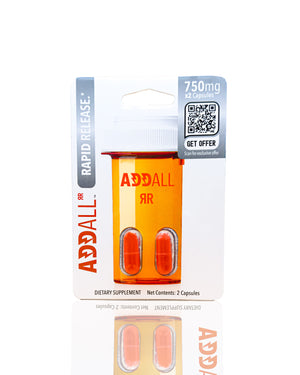
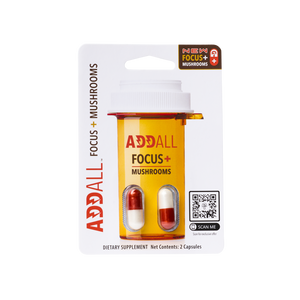

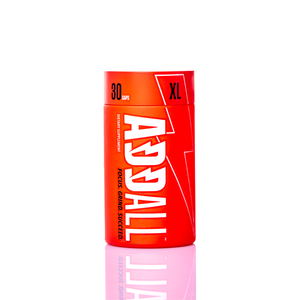
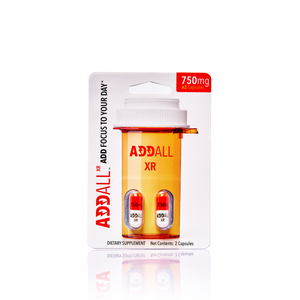

 Addall XR
Addall XR
 Addall XL
Addall XL
 Addall
Addall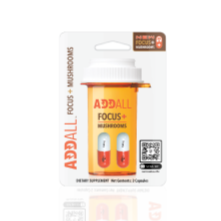 Addall
Addall Addall
Addall
 Compare
Compare




















































